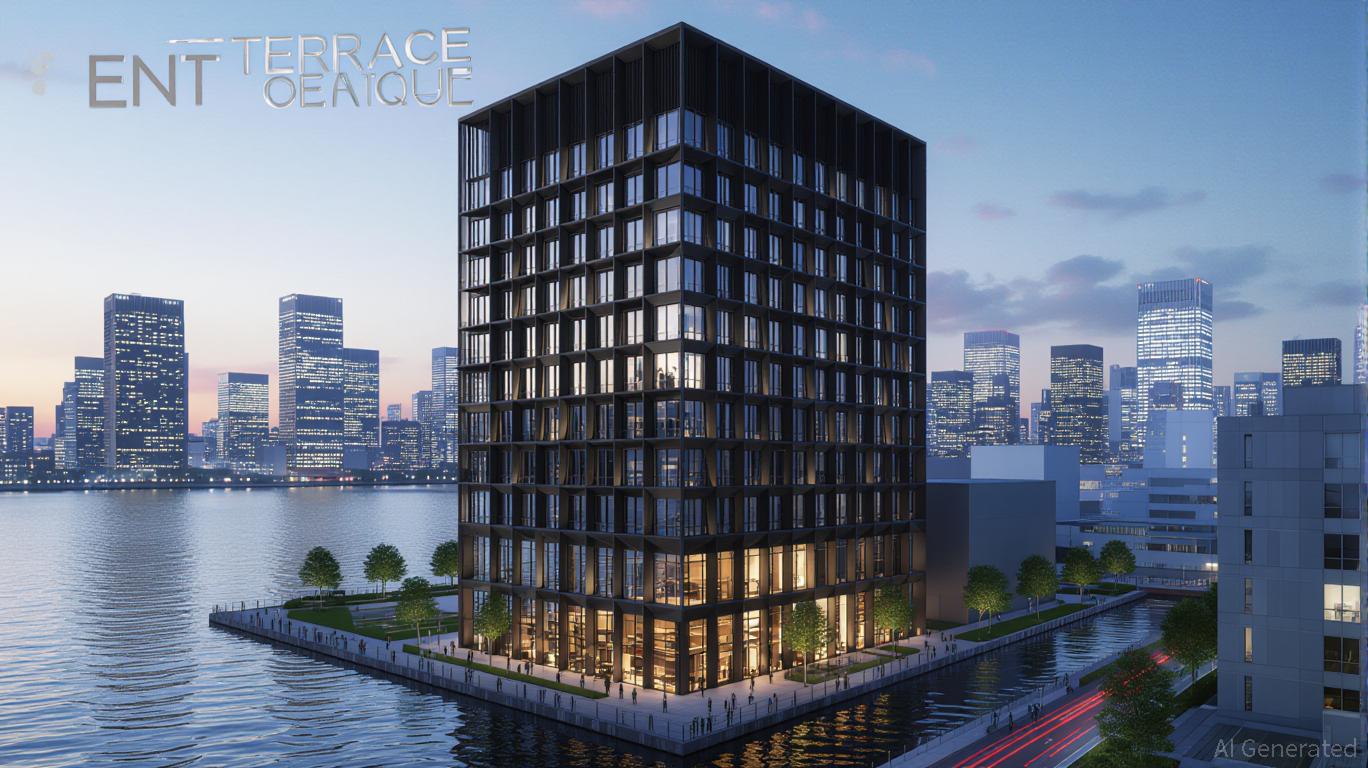Japan’s real estate market is undergoing a quiet but transformative shift, driven by a confluence of urban revitalization, luxury hospitality demand, and strategic asset management. At the forefront of this evolution is Lead Real Estate Co., Ltd. (Nasdaq: LRE), a developer with a reputation for redefining high-end living in Tokyo. The company’s recent initiatives—centered on the Tsukiji District Community Development Project and a bold foray into luxury hotel development—highlight a calculated approach to asset monetization and long-term value creation. For investors, this represents a compelling case study in leveraging prime real estate, urban renewal, and global tourism trends to build a sustainable portfolio.
 The Tsukiji Opportunity: Urban Renewal as a Catalyst
The Tsukiji Opportunity: Urban Renewal as a Catalyst
Lead Real Estate’s flagship project, ENT TERRACE Tsukiji 6 Chome, is more than a hotel—it is a cornerstone of the $6 billion Tsukiji District Community Development Project. This urban renewal initiative, spearheaded by the Tokyo Metropolitan Government and private partners like Mitsui Real Estate and Toyota, aims to transform the former Tsukiji Market site into a vibrant waterfront hub. The project includes a new subway station, boat transport infrastructure, and a 50,000-capacity stadium, all designed to position Tsukiji as a global destination for business, culture, and leisure.
The ENT TERRACE Tsukiji 6 Chome hotel, with its eight extended-stay rooms and 6,698-square-foot footprint, is strategically positioned to capitalize on this transformation. By selling the property under construction, Lead Real Estate mitigates risks associated with development delays while securing near-term liquidity. This approach mirrors broader industry trends in Japan, where developers are increasingly adopting off-plan sales to monetize assets in high-growth areas.
The Tsukiji redevelopment also aligns with Japan’s national tourism strategy. With international visitor numbers surging past 36.9 million in 2024 (up from 32 million in 2019), and luxury RevPAR in Tokyo rising 28% year-on-year in 2024, the area is primed to absorb high-end hospitality offerings. The weak yen has further amplified demand, making Tokyo a “value-luxury” destination for travelers from the U.S., Europe, and the Middle East.
Designing Value: The Prostyle Design Alliance
Lead Real Estate’s recent strategic alliance with Prostyle Design, a Shibuya-based interior design firm, underscores its commitment to differentiation in the luxury market. Prostyle’s philosophy of “Living with Food, Clothing, Shelter, and Pleasure” extends beyond aesthetics to create immersive experiences that resonate with ultra-wealthy clients. This partnership is not merely about aesthetics—it is a value-engineering play. By integrating Prostyle’s design expertise into the development of luxury detached homes, condominiums, and hotel properties, Lead Real Estate enhances the perceived and functional value of its assets.
This synergy is particularly potent in Tokyo’s prime districts (Minato-ku, Shibuya-ku, Chuo-ku), where demand for bespoke living and hospitality spaces is outpacing supply. The alliance also opens new revenue streams through brand partnerships, positioning Lead Real Estate as a curator of lifestyle experiences rather than just a property developer.
Financial Leverage and Market Trends
Lead Real Estate’s FY2024 results provide a glimpse into the financial potential of its dual strategy. The company’s hotel business revenue surged 46.3% to ¥463.6 million, driven by the full operationalization of two existing properties. Meanwhile, real estate sales grew by 8.1% year-on-year, reflecting strong demand for high-end residential units. These figures align with broader market dynamics:
Hotel transaction volumes in Tokyo reached $7.7 billion by year-end 2024, with Q1 2025 seeing an 81% year-on-year increase. RevPAR growth in Tokyo hit 18% year-to-date in May 2025, driven by international demand and infrastructure improvements. Tsukiji land prices rose 16.6% year-on-year in 2024, mirroring growth in Ginza, a testament to investor confidence in the area’s future.
The company’s pivot toward condominium development further diversifies its revenue base. While average sale prices have dipped due to a focus on lower-cost areas, the hotel segment’s strong performance suggests a sustainable path to profitability. Lead Real Estate’s CEO, Eiji Nagahara, has emphasized the need to balance short-term liquidity with long-term value, a strategy that resonates with investors seeking resilience in a post-pandemic market.
Risks and Rewards in a Dynamic Market
Despite its strengths, Lead Real Estate’s strategy is not without risks. The Tsukiji project’s success hinges on the timely completion of the broader redevelopment initiative, which involves complex coordination with multiple stakeholders. Delays or cost overruns could erode margins. Additionally, the luxury hospitality sector is vulnerable to global economic shifts—such as a slowdown in international tourism or a strengthening yen—that could dampen demand.
However, the company’s Kaizen (continuous improvement) approach and focus on prime assets mitigate these risks. By prioritizing locations with strong infrastructure and cultural appeal, Lead Real Estate insulates itself from regional volatility. Moreover, its global transaction platform—aimed at connecting buyers to prime Japanese and overseas condominiums—positions it to benefit from cross-border capital flows.
Investment Thesis: A Strategic Play on Urban Evolution
For investors, Lead Real Estate’s strategy offers a unique combination of asset monetization, urban renewal, and luxury hospitality growth. The Tsukiji project, in particular, represents a high-conviction bet on Tokyo’s transformation into a global luxury travel hub. With the 2025 World Expo in Osaka and Japan’s 60-million-visitor tourism goal by 2030, the tailwinds for luxury hospitality are robust.
The company’s financials, coupled with its strategic alliances and urban development partnerships, suggest a compoundable growth trajectory. While the stock carries some volatility, its exposure to high-demand sectors and prime assets makes it an attractive addition to a diversified real estate portfolio.
Conclusion
Lead Real Estate Co., Ltd. is not merely reacting to market trends—it is shaping them. By aligning its asset monetization efforts with the Tsukiji District’s urban revival and the global appetite for luxury travel, the company is creating a blueprint for long-term value. For investors with a medium-term horizon, the combination of strategic execution, market tailwinds, and financial discipline makes LRE a compelling case study in real estate innovation. As Tokyo’s skyline evolves, so too does Lead Real Estate’s potential to deliver outsized returns.


AloJapan.com